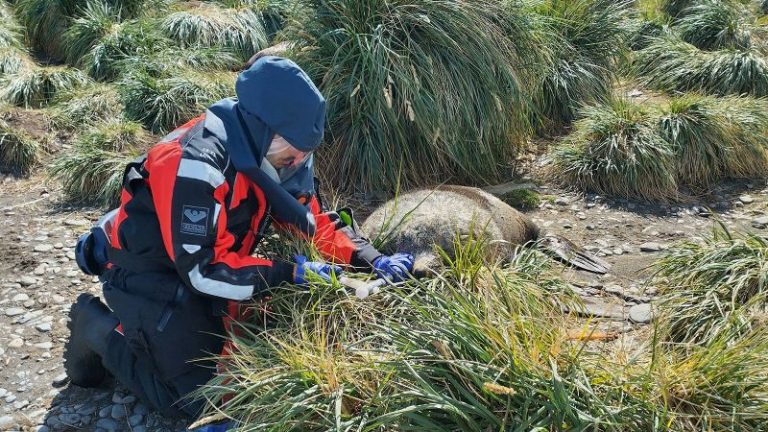An unprecedented and highly contagious bird flu outbreak in the sub-Antarctic has spread to mammals, British officials said Thursday, as experts warned the disease poses a significant threat to the region’s fragile ecosystem.
It comes after the British Antarctic Survey (BAS) in October confirmed the first case of Highly Pathogenic Avian Influenza (HPAI) in the Antarctic region in brown skua on Bird Island, South Georgia, a British overseas territory in the Southern Atlantic Ocean.
In a news release Thursday, the United Kingdom’s Animal and Plant Health Agency (APHA) said the disease had now been detected in elephant and fur seals on South Georgia, which lies east of South America’s tip and just above Antarctica’s main landmass.
“The presence of High Pathogenicity Avian Influenza (HPAI) has today been confirmed for the first time in mammals in the sub-Antarctic,” it said.
Bird flu is caused by infections that occur naturally among wild aquatic birds, according to the US Centers for Disease Control and Prevention (CDC). Infected birds can transmit the virus to other animals through their saliva and other bodily discharges.
In its October statement, BAS said its analysis showed the virus had most likely been introduced to South Georgia through migratory bird movement from South America.
In December, experts from APHA and BAS spent three weeks collecting samples from dead mammals and birds in the affected islands.
These samples from elephant seals, fur seals, brown skuas, kelp gulls and Antarctic terns have tested positive for HPAI H5N1, APHA said.
Fragile ecosystem at risk
Antarctica and its offshore islands are home to more than 100 million breeding birds, six seal species and 17 species of whales, dolphins, and porpoises, according to global avian influenza experts network OFFLU, which has previously warned of the possibility of “efficient virus transmission” in the region.
“Given Antarctica is such a unique and special biodiversity hotspot it is sad and concerning to see the disease spread to mammals in the region,” said Ian Brown, APHA’s director of scientific services.
“If avian influenza continues to spread throughout the sub-Antarctic region this could significantly threaten the fragile ecosystem, and potentially put a number of very large populations of seabirds and sea mammals at risk.”
Samples collected from albatross and giant petrel colonies on Bird Island tested negative, APHA said. “There have been no reports of above average mortality in any penguin species to date,” it added.
BAS, which operates two research stations on South Georgia, has out of caution suspended “most fieldwork involving contact with animals,” it said.
Several countries experienced record outbreaks of bird flu least year. In Japan, nearly 10 million birds were killed to limit the spread of the disease, straining poultry supplies and sending the price of eggs soaring.

